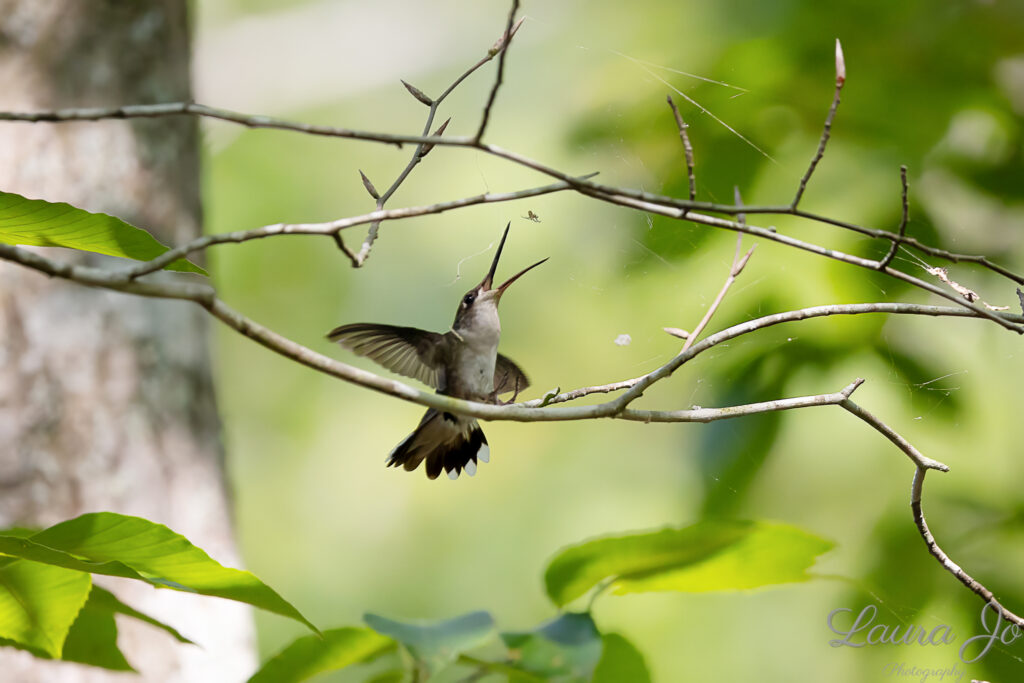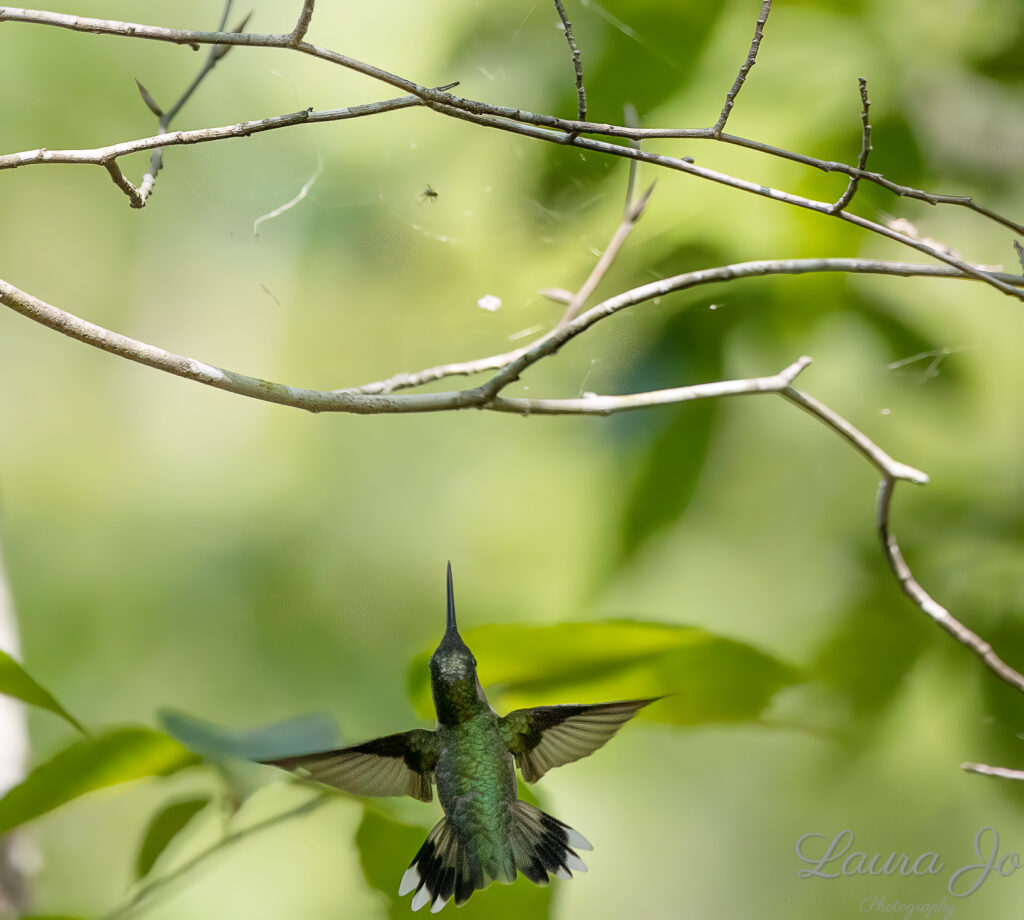
By Mary Reid Barrow
Photos by Laura Joksaite
Laura Joksaite and a friend were taking photos of great blue heron nests off 64th Street at First Landing State Park when Laura was compelled to switch her camera focus from the big birds to a very tiny one.
“I could not believe what I saw,” she said.
A female hummingbird was “poking the spider webs” in nearby trees, trying to capture the spiders, Laura said.

She said this was all new to her, that she thought hummingbirds dined only on nectar.
We humans see hummers mostly at our nectar feeders or garden flowers. But in the wild the little birds dine not only on flower nectar but also insects, lots of them. Depending on the season, they will depend on one source or the other.
In this case Laura’s female hummer with her pale white throat was most probably gathering insects to feed her babes growing up in a thimble-size nest attached to a tree branch nearby.
Mom would probably take not only the spider, but also insects from the web back to her little ones. And that’s not all. She wouldn’t pass up gnats, mosquitoes and other small fliers nor would she overlook aphids and little insects on plant leaves.
Hummingbird youngsters survive only on insects until they are big enough to leave the nest. Then they learn from mom how to extract nectar from flowers and feeders with their long tongues.
About this time of year, every year, we remember summers’ past when hummers zoomed around our feeders, and we begin to wonder where all the hummingbirds are.
They are here but still in their nests and mom is busier than ever, capturing scores of insects every day to keep those growling tummies full. She rarely gets a chance to relax at your feeder.
Dead beat dads with their shiny ruby-red throats are about the only hummers you see now. They gad about, foot loose and fancy free, visiting all the neighborhood feeder bars.
Just wait. Come July, the babies will fledge. Our hummer population will boom with youngsters and moms ready to abandon their insect diet and vie with the dads for the best seat at your nectar bar.
Reader Notes
Hope Wright wrote, after reading the house centipede blog: “Oh NO! I killed one last week in my bathroom.” She said it was beautiful and she hated killing it but didn’t know if it was harmful or not. “Now, I know,” she said.